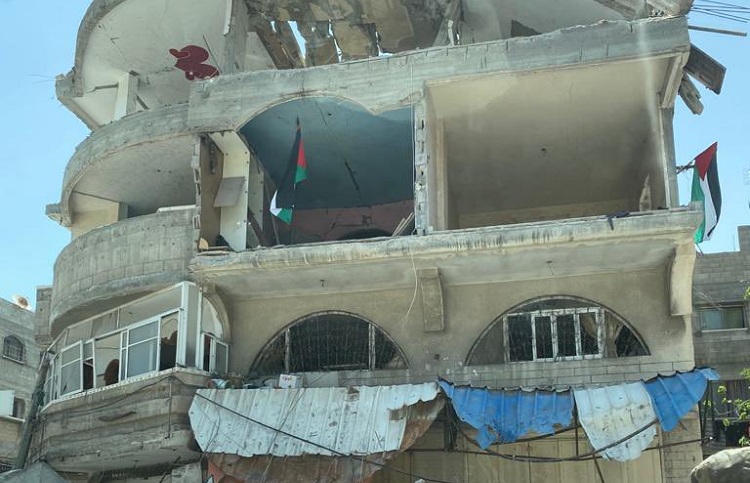The Diplomat
The Spanish Agency for International Development Cooperation (AECID) and the NGO Action Against Hunger have pledged to dedicate their first joint humanitarian initiative to the population of the Gaza Strip, following the offensive carried out by Israel between May 10 and 21.
This was announced last Wednesday by the Agency after a delegation from the Spanish Consulate General in Jerusalem and the AECID Technical Cooperation Office participated in an international damage assessment mission in the Gaza Strip, led by the United Nations Relief and Works Agency for Palestine Refugees in the Near East (UNRWA) and in which, in addition to Spain, other donor countries and institutions participated.
AECID and Action Against Hunger have activated their worldwide emergency agreement to try to alleviate the suffering of the people of Gaza. To this end, the Agency will finance with a total of 142,527 euros an emergency initiative, to be implemented by the NGO on the ground, to provide emergency aid to 160 displaced families – approximately 880 people – in the form of cash transfers, water tanks and hygiene kits, as well as to benefit 89,000 people through the removal of garbage accumulated in the streets during the escalation of violence.
The UNRWA mission was part of the immediate needs identification and damage assessment phase launched by the UN and local organizations following the May 21 ceasefire to facilitate the reconstruction of housing and basic infrastructure. During the visit, the delegation toured the urban areas most damaged in the latest bombardment, as well as the refugee camps of Shati – home to some 82,000 people – and Jabalia, the largest of the eight refugee camps in the Gaza Strip with a population of more than 195,000 people, according to UNRWA.
As a result of this latest Israeli offensive, 258 buildings have been destroyed and more than 1,000 homes have been rendered uninhabitable. In addition, some 58 educational facilities have been damaged, as well as nine hospitals and 19 health centers, including the COVID-19 central testing laboratory. In addition, electricity supply has been reduced to five to six hours, and water and sanitation facilities – an estimated 800,000 people do not have regular access to water – have been damaged.
The provision of food, basic hygiene, psychosocial and health care, the return to school of children, access to water and sanitation and special protection for vulnerable groups, such as people with disabilities, children and the elderly, are, for the moment, the priorities of international humanitarian action, according to AECID.





